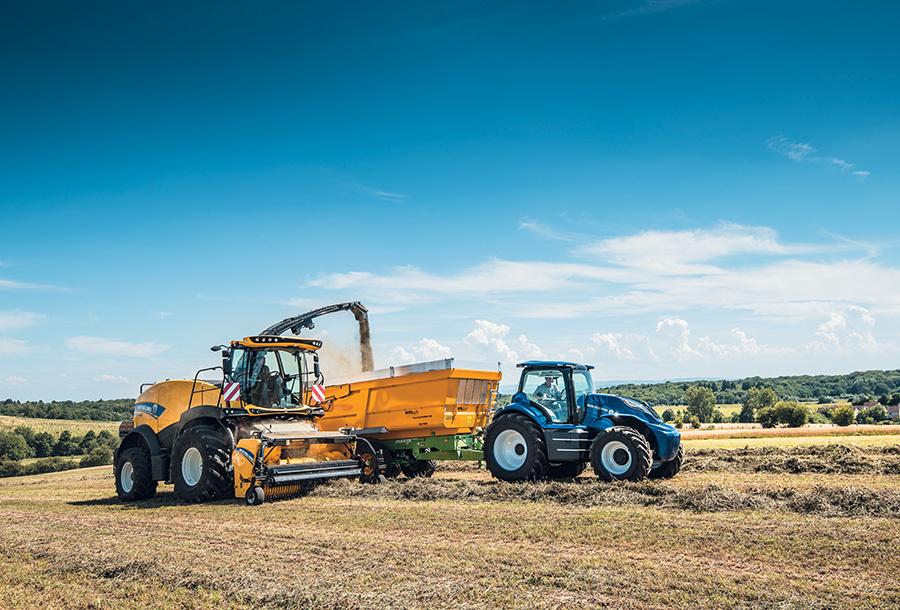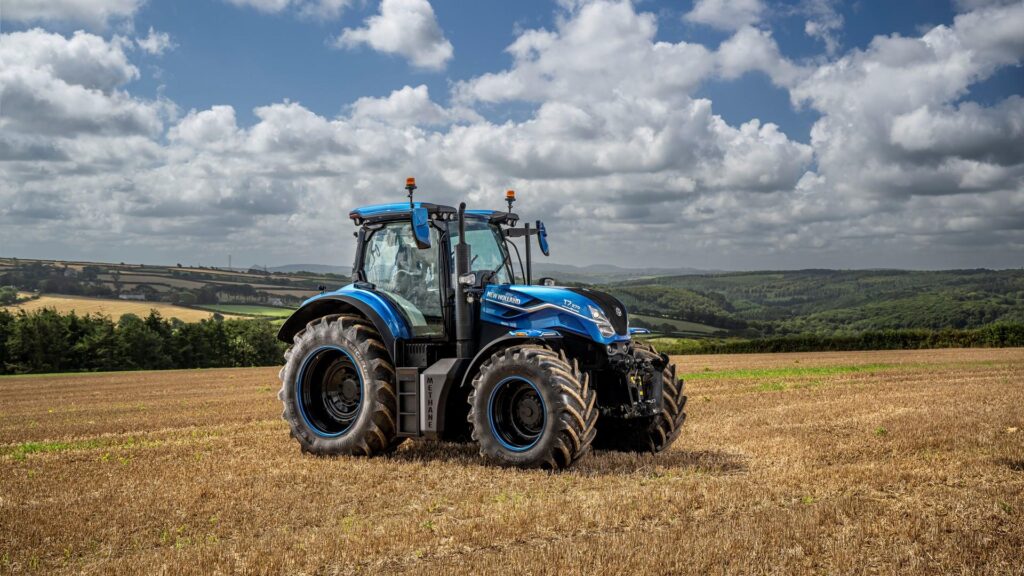In a significant move toward sustainable agriculture, New Holland Agriculture has introduced its frist methane-powered tractor to the United States market. This groundbreaking vehicle represents a shift in farm equipment technology, offering farmers an option to customary diesel-powered machinery. The methane tractor, which has already been tested in European markets, combines conventional tractor capabilities with reduced environmental impact through its biomethane fuel system.In a groundbreaking progress for sustainable agriculture, the first commercially available methane-powered tractor has made its debut on American soil. The innovative machine represents a significant leap forward in eco-friendly farming equipment, offering farmers a viable alternative to traditional diesel-powered vehicles while maintaining the same performance standards.
The T6.180 model features a 6.7-liter engine that runs entirely on compressed methane gas, delivering 175 horsepower and equivalent torque to its diesel counterpart.This revolutionary power system reduces operating costs by up to 30% compared to conventional tractors while slashing carbon dioxide emissions by approximately 99% when using biomethane.
farmers can source the methane fuel from various origins, including natural gas networks or by producing their own biomethane from agricultural waste and crop residues. This circular economy approach enables agricultural operations to become energy self-reliant and perhaps carbon-negative, as the methane captured from waste would otherwise release into the atmosphere.
The tractor’s fuel storage system comprises composite tanks seamlessly integrated into the overall design, storing up to 453 liters of compressed methane. This capacity ensures about eight hours of continuous operation, matching the working intervals of diesel-powered equipment. The refueling process takes approximately the same time as traditional fuel filling.Built with practicality in mind, the methane tractor maintains identical dimensions to its diesel equivalent, ensuring compatibility with existing implements and maintaining familiar operator experiences. The cab features advanced digital displays that monitor fuel levels and engine performance, while additional safety systems specific to methane operation have been incorporated.
Field testing across various agricultural environments has demonstrated the tractor’s capability to perform all standard farming operations, from plowing and seeding to transport tasks. The reduced engine noise levels, up to 50% lower than diesel engines, provide enhanced operator comfort and reduced environmental impact in noise-sensitive areas.
The introduction of this technology aligns with growing environmental regulations and sustainable farming initiatives. Government incentives for reducing agricultural emissions make the transition to methane power more financially attractive for farmers. Early adopters can potentially benefit from carbon credits and environmental stewardship programs.
Manufacturing facilities have been modified to accommodate the specialized production requirements, with dedicated testing and quality control protocols established for the methane fuel systems. Dealer networks are undergoing specialized training programs to service and maintain these new vehicles, ensuring proper support infrastructure is in place.The methane tractor’s arrival marks a pivotal moment in agricultural equipment evolution, offering a practical solution for farmers seeking to reduce their environmental impact while maintaining productive operations. As the agricultural sector continues to embrace sustainable technologies,this innovation represents a significant step toward carbon-neutral farming practices.


